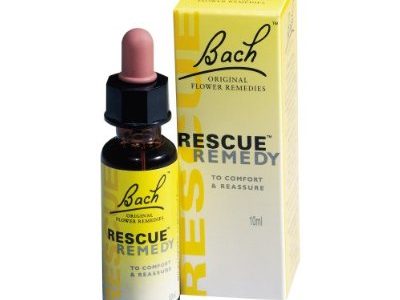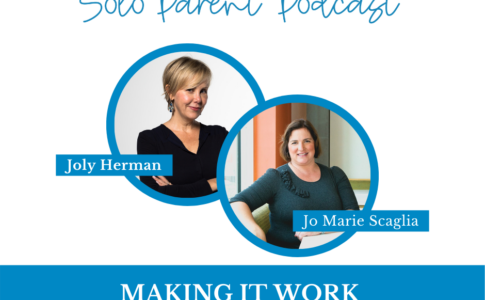DON’T DO THIS AT HOME. LESSONS FROM SOLO PARENTS AND EXPERTS ABOUT WHAT TO DO AND WHAT NOT TO DO WHEN YOU ARE A DIVORCED PARENT.
Also known as the-don’t-badmouth-your-ex episode, here is a very important cornerstone in the raising of healthy children. Joly Herman, Founder and Editor-In-Chief of Solo Parent Magazine www.soloparentmag.com) breaks down the when’s and why’s of talking about your ex with your kids.
You are not alone. Parenting in a non-traditional framework is the new normal. Yet, the parenting books on the shelves aren’t talking to us. That’s why Solo Parent Magazine has brought you this podcast series. We’re here to help you raise your kids in the healthiest, happiest way possible. We believe that all families are normal, that all families are whole. So if you are raising kids as a single parent, as a co-parent, a divorced parent, a widowed parent, or if you are a step-parent, you have found your home. We are here to inform, educate, and inspire you on your unique and challenging parenting journey.
In this episode, we talk about…
[0:58] Don’t badmouth your ex in front of your child(ren)
Any way you slice it, the beginning is really rough. Your ex may have done something terrible to you, and you may be feeling resentful. But before you start listing the well thought out arguments for why your ex is a trashy mess, think about your audience.
Children identify with both parents implicitly. Saying that Mom or Dad is a horrible person might make them feel like half of themselves is horrible too.
[1:25] How children handle negative comments about their parents
In an article called ‘Badmouthing Your Ex’ from Solo Parent Magazine, Tina O’Reilly shares that children handle negative comments in many different ways.
They may take sides or express hostility toward the other parent in an effort to care for the parent expressing the negativity (often perceived as the “wounded parent”).
Children might also become angry with the parents speaking negatively and act out.
The worst case scenario, however, is that children may internalize what is being said because they love and identify with the parent being denigrated. The effects can be long-term and significant contributing to depression, anxiety, and behavioral problems.
[2:33] The three primary reasons a parent may speak negatively of the other parent
Few parents set out to intentionally hurt their child. According to Anne P. Mitchell, attorney and author of ‘They’re Your Kids Too’, there are three things that primarily lead a parent to speak negatively of the other parent around their kids.
- The desire to get the kid on their side
- To turn the kid against the other parent
- Anger or rage at the other parent
Mitchell stresses the importance of dealing with the hurt, anger, and fallout from the divorce. It is important to process these feelings, but she recommends speaking with a sympathetic friend or a counselor and keeping it out of the earshot of the kids. Speaking negatively about a former spouse in front of your children can destroy their own sense of self-worth.
[3:32] How to speak kindly but honestly about a parent who is unfit
But what if the other parent is really doing bad things? What if there is criminal behavior or addiction? Dr. John Mayer offers another facet to this complex issue. While experts stress always speaking kindly about your ex, it is also important to consider the equally damaging effects of speaking positively about an abuser or a criminal. Mayer points out that children know when a parent is really unfit. If you talk positively about them, they know you are being dishonest. They can begin to distrust you, as well as their own instincts.
[4:22] The gray area between what really happened and a child’s perception of what happened
Children will likely see through any sugarcoating, but there may be a gray area between what really happened and a child’s perception of what happened. Unless you witnessed something firsthand, it is generally good practice to just let it lie. You can keep notes in a notebook or in your planner. You may not agree with your ex’s parenting style, but you have to toe the line between being supportive and being protective.
Monique Prince, clinical social worker and parenting coach, suggests that kids may not always be the most reliable narrators. Unless you see it firsthand, you should not get involved. Instead, you might say, “I’m sorry that Mom yelled at you that way. You don’t deserve that,” or, “I see that you think that it’s unfair. I feel bad that it’s this way,” or, “Maybe Dad was having bad day and didn’t realize he was hurting your feelings or scaring you. I know he loves you very much.”
Additionally, it is important to encourage your children to advocate for themselves by helping them find words and communicate their feelings to the other parent on their own. This will bolster their self-esteem and provide them with one of the most useful tools needed in life: advocacy.
[6:07] Listen without judgment and reflect
If you take away just one thing from this episode, it should be this: Listening is often enough. Listen without judgment. Listen and reflect. Your kids will appreciate that they can come to you. They will treat you as a trusted adult. Listening is usually the most reliable and most comforting thing that we can do.
Where to Find Joly Online:
Website: https://www.soloparentmag.com
Instagram: https://www.instagram.com/soloparentpodcast






